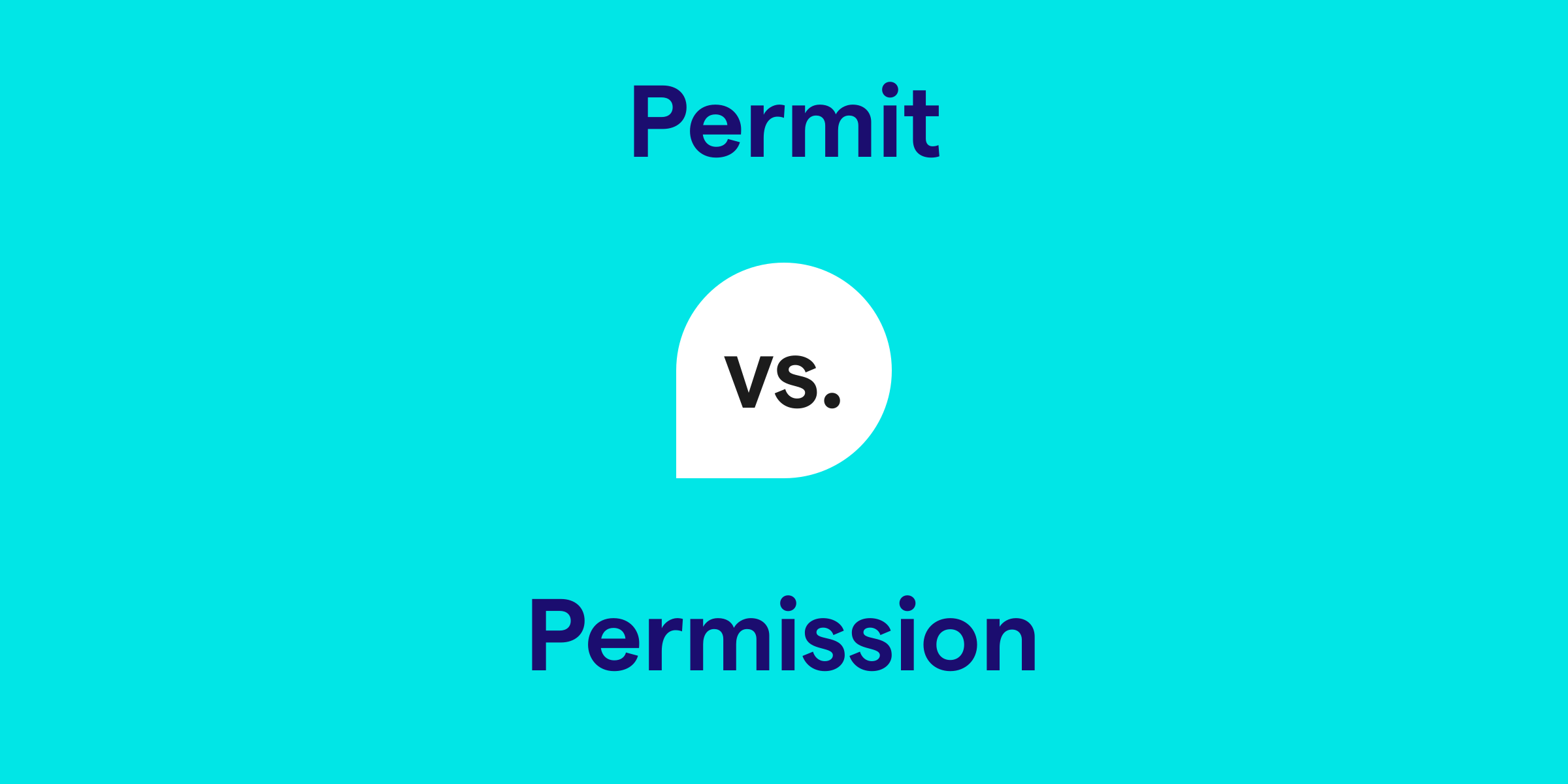Permit vs. Permission: What's the Difference?
Permit and permission are closely related concepts that often confuse many. A permit is an official document or certificate that authorizes someone to do something, such as a building permit. On the other hand, permission refers to the approval or consent given by someone in authority, which doesn't necessarily require an official document. It can be verbal or written confirmation that someone is allowed to take a particular action.

How do you use the word permit in a sentence?
The word permit is often used when referring to an official license or document granting the right to do something. You might require a permit to build an extension on your house, for example. It implies a formal permission process, usually involving an application and approval from a governing body or authority.
Examples of permit in a sentence
- After a long wait, the city council finally granted us the building permit.
- Visitors must obtain a permit to enter the nature reserve.
- The new regulations permit the use of electric scooters on bike paths.
How do you use the word permission in a sentence?
Permission is used to denote consent or approval from someone who has the power to grant it. Asking for permission is a basic social rule typically observed in personal interactions. Parents often teach their children to ask for permission before taking or using something that doesn't belong to them. Permission may not require a formal process but is still a necessary step for ethical conduct.
Examples of permission in a sentence
- She asked her teacher for permission to leave the classroom.
- Do you have your parents' permission to go on the school trip?
- He gave me permission to borrow his car for the day.
Permit and permission definition, parts of speech, and pronunciation
Permit definition:
A permit is a noun referring to an official document granting authorization or license to do something. It can also be used as a verb meaning to allow the occurrence of an activity.
Permit parts of speech:
Permit pronunciation:
Permit is pronounced as /ˈpɜː.mɪt/ when used as a noun and /pərˈmɪt/ when used as a verb.
Permission definition:
Permission is a noun meaning the act of allowing someone to do something or the state of being allowed to do something.
Permission parts of speech:
Permission pronunciation:
Permission is pronounced as /pəˈmɪʃ.ən/.
A permit is a noun referring to an official document granting authorization or license to do something. It can also be used as a verb meaning to allow the occurrence of an activity.
Permit parts of speech:
- As a noun: The construction team is waiting for the environmental permit.
- As a verb: Local laws do not permit overnight camping on the beach.
Permit pronunciation:
Permit is pronounced as /ˈpɜː.mɪt/ when used as a noun and /pərˈmɪt/ when used as a verb.
Permission definition:
Permission is a noun meaning the act of allowing someone to do something or the state of being allowed to do something.
Permission parts of speech:
- As a noun: You need special permission to access these files.
- There is no other part of speech for the word permission as it is always used as a noun.
Permission pronunciation:
Permission is pronounced as /pəˈmɪʃ.ən/.
Permit vs. Permission in a nutshell
While both permit and permission pertain to the concept of consent, they differ in their form and context of use. A permit usually means a formal official document required for certain actions, while permission is a broader term for consent that can be given verbally or in writing and may not always involve a formal process. Understanding when to use each can help in proper communication, especially in legal or formal settings.
Get AI Writing Assistance Wherever You Type
Make sure your vocabulary is on point and every punctuation mark is in the right place, no matter where you’re working. Grammarly works across more than 1 million websites and apps so you can improve your writing without copying, pasting, or breaking focus.

More Commonly Confused Words
Interest piqued? Pore (not pour) over other commonly confused words to help your writing reach peak (not peek) performance.